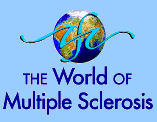|
Research survey regarding the state of the MS drug prescription
U.S . Bancorp Piper Jaffray Senior Biotechnology Analyst Peter L. Ginsberg, released data from a proprietary research survey regarding the current and future state of the multiple sclerosis (MS) drug prescription market. A seven-question survey was distributed to 1,000 neurologists in the United States, receiving responses from 245 clinicians who treat a total of more than 4,000 MS patients monthly, for an encouraging 24.5 percent response rate.
The survey results indicate that 25 percent of respondents plan to prescribe Avonex 'much more often' or 'more often' in 2001, while only 12 percent plan to prescribe Avonex 'less often.' Moreover, 40 percent of respondents plan to prescribe Copaxone 'much more often' or 'more often' while only 5 percent plan to prescribe Copaxone 'less often.' The only multiple sclerosis drug that was indicated to be prescribed less often, was Betaseron.
Clinicians commonly described two reasons behind plans for more Avonex prescriptions in 2001. Avonex's ease of use (Avonex's once/week administration compares with three times/week injections for Betaseron and daily injections for Copaxone) was mentioned by roughly 15 clinicians as a reason for expanding use of the drug. Second, another 15 clinicians emphasized the strong Avonex efficacy data, including several who mentioned the CHAMPS data specifically, as their reason for prescribing Avonex more often going forward."
In addition, results indicate that secondary progressive multiple sclerosis (SPMS) may make up a much larger portion of the overall MS patient population than previously perceived. Respondents indicated that 29 percent of their MS patients have secondary progressive MS (SPMS), greater than the 20 percent of MS patients generally thought to have SPMS.
The recent positive Avonex SPMS trial results may have a greater impact on the drug's use than would have been anticipated.

|
|